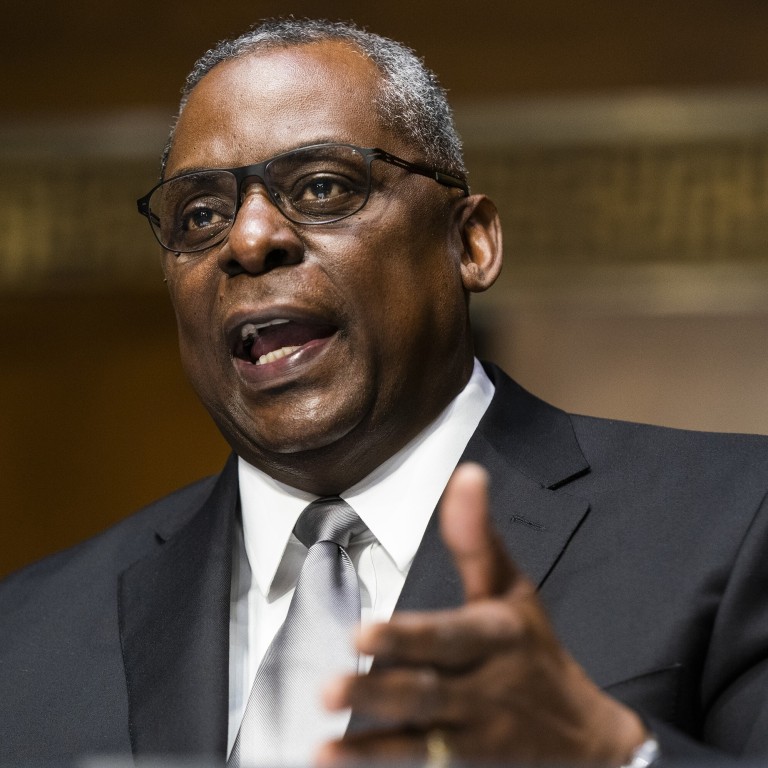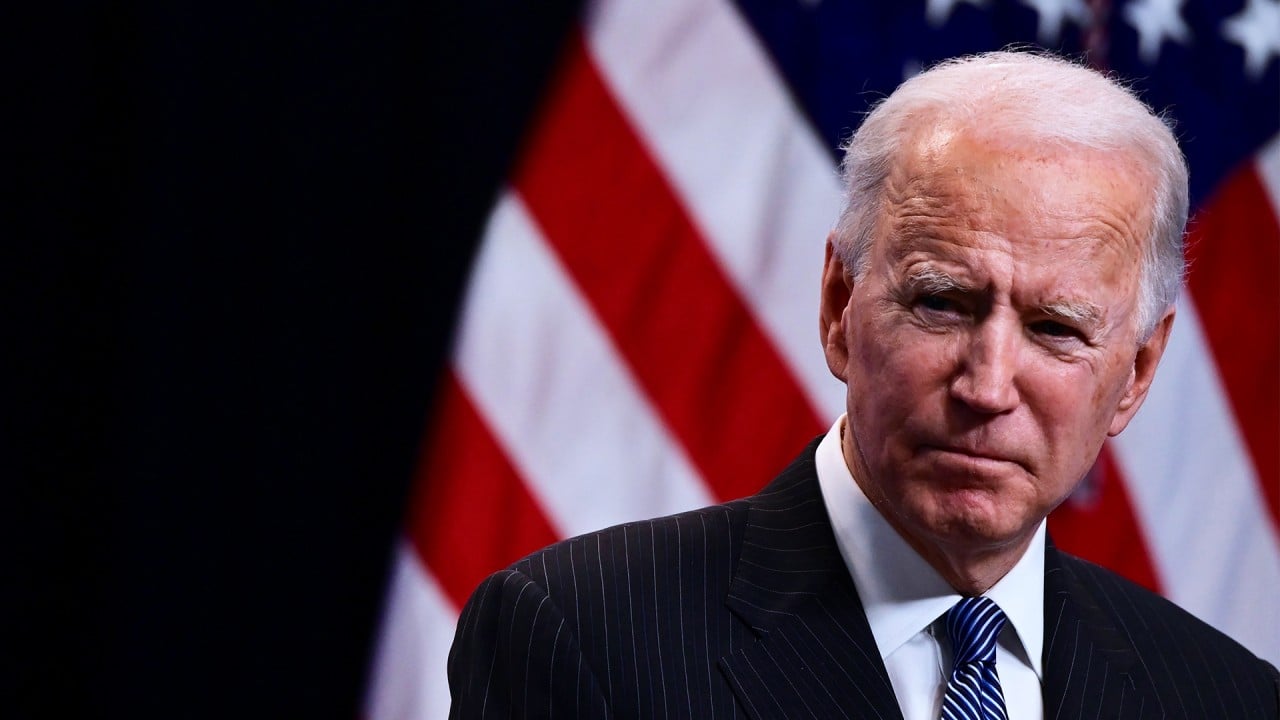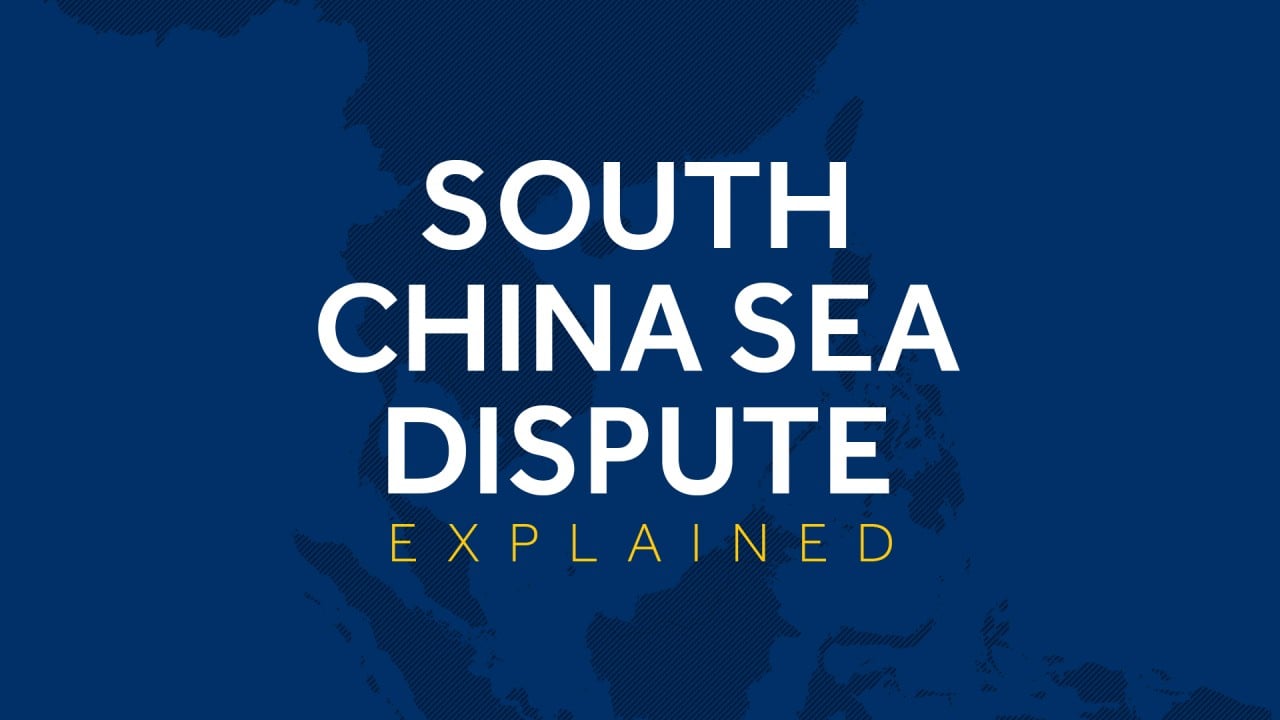
Japan key to US plan to rally allies against China in Indo-Pacific, observers say
- US Defence Secretary Lloyd Austin urges Tokyo to strengthen its contribution to regional security
- Japan has been stepping up its role in the region by building partnerships with neighbours and allies
Japan could be stabilising influence in US-China relations, says ambassador
President Joe Biden’s administration is seeking to rebuild US alliances which were sorely tested by his predecessor’s America First policies.
Benoit Hardy-Chartrand, an East Asia affairs expert at Temple University in Tokyo, said Japan – which hosts the largest number of US troops in the region, as well as providing a base for the US Navy’s Seventh Fleet – had a “prominent role” to play, even though the contours of Biden’s Indo-Pacific strategy had yet to be determined.
“President Biden himself, as well as his nominee for Secretary of State, Anthony Blinken, have made it clear that the reinforcement of Washington’s alliances in the region will be a top priority for the US,” he said.
“Japanese Prime Minister [Yoshihide] Suga will be happy to reciprocate, as he has vowed to maintain the foreign policy orientations of his predecessor Shinzo Abe, under whose leadership Japan has reinforced its role in the alliance with the US and become a more consequential actor in regional security.”
The concept of a free and open Indo-Pacific region was first introduced by Japan in 2016, before it was formalised by the US State Department in 2019. Beijing regards Washington’s Indo-Pacific strategy as a move to rally regional players like India, Australia and Japan against China’s rise.

01:04
Biden to approach US-China relations with ‘patience’, says White House
Japan, which sees China as a major rival, has been carefully and steadily pushing for like-minded countries to unite in countering Beijing’s growing influence and ambitions in the region.
In September, Japan and India signed a deal allowing access to each other’s military bases for logistical support. Just weeks later, Suga used his first overseas visits as prime minister to promise stronger security and economic ties with Vietnam and Indonesia.
This was followed in November with the signing of a reciprocal access agreement with Australia, allowing the two armed forces to carry out joint exercises, visit each other’s countries and potentially conduct military operations together.
And, late last month, in a move that is likely to have touched a raw nerve in Beijing, Kishi invited his German counterpart Annegret Kramp-Karrenbauer, to send a warship to East Asia. The visit could include the South China Sea, where Beijing’s extensive claims are contested by a number of small Southeast Asian countries, including Vietnam, the Philippines, Malaysia, Brunei and Indonesia.

03:23
The South China Sea dispute explained
While Japan is a non-claimant in the strategically important waterway, 90 per cent of its oil and gas supplies travel through it from the Middle East, giving it deep concerns about China’s activities in the South China Sea.
Last week Japan joined the US and its allies Australia, Britain, Germany and France in submitting a diplomatic note to the United Nations, rejecting Beijing’s baseline claims and condemning its efforts to restrict navigation and flyovers in the South China Sea.
Hardy-Chartrand said Tokyo’s interest in the East China Sea meant it would not want to push Beijing too hard on the issue. “Japan will maintain its presence in the [South China Sea] but will likely remain cautious to avoid a strong reaction from China, as it may affect their territorial dispute in the East China Sea,” he said.
Japan weighs in on South China Sea dispute, adding to pressure on Beijing
Chen Xiangmiao, an associate researcher with the National Institute for South China Studies in the southern Chinese province of Hainan, said Japan would be an important part of the US push for an alliance-centred network to counter China.
“That would include further cooperation on multiple fronts, from military, diplomacy, the legal sphere and politics, as well as public opinion in countries like Vietnam and the Philippines, to closely coordinate with the US in its South China Sea policy,” he said.
Lam Peng Er, a senior research fellow at the National University of Singapore’s East Asian Institute, said Japan would also be concerned that China could one day declare an air defence identification zone in the South China Sea.
“China has done that in the East China Sea, but if China declared in the South China Sea, Japan would be very concerned and very upset,” he said.
Diaoyu/Senkaku islands dispute
Japan has steadily stepped up its engagement with the South China Sea claimants – drilling is expected to start this year in a joint offshore energy project between Japanese companies and Vietnam, while the Philippines has acquired coastguard vessels and radar systems from Japan.
Japanese vessels have also taken part in South China Sea exercises with forces from the US and the Philippines.
But, Lam pointed out, while Japan’s engagement with the South China Sea claimants had been consistent, it was restricted in any military operation by its constitution, which prevents it from settling international disputes with armed force. There was no domestic consensus that any conflict in the South China Sea posed an imminent threat to Japan, he added.
Lam also said there was a significant difference between Japan and the US in their approach to the region. “The Japanese concept of the Indo-Pacific centres on multilateral economic and diplomatic cooperation in a rule-based order, whereas the US strategy … emphasises a muscular balance of power against a rising China,” he said.

